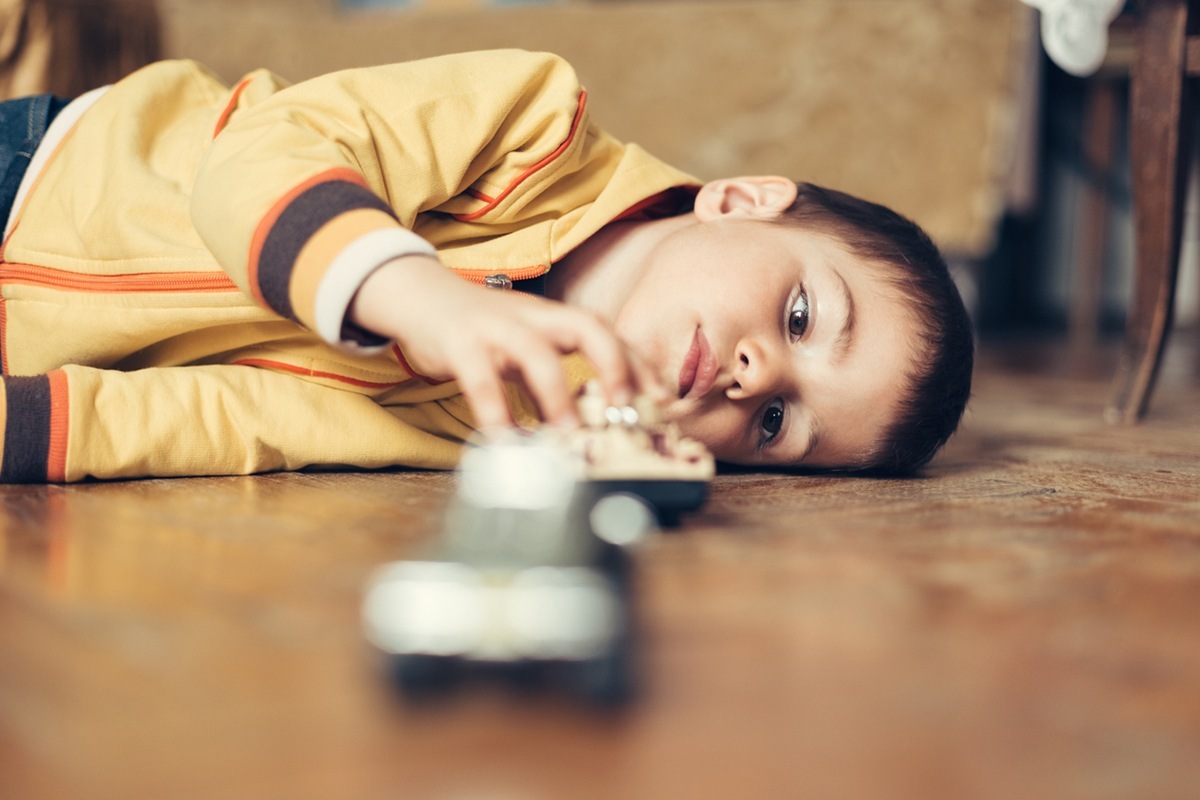RIO DE JANEIRO, BRAZIL – Theo, three years old, is more hyperactive. Raphael, 13, more irritable. Lucas, 18, more reclusive. Each one reacted differently, but they all had trouble accepting the change in routine with the start of quarantine at the home of Liliane Senhorini, 42.

The mother of the three, all diagnosed with autism, has spent her days concerned ever since the measures to contain the coronavirus pandemic were enforced, as have many other families with children and adolescents with disorders or intellectual disabilities.
Even with the distance monitoring of professionals and the efforts to maintain daily activities, the interruption of therapies and social isolation are now having physical and psychological consequences for these youths. Some are even showing signs of regression.
“The activities, timetables, and schedules for people with autism are very important. It is the way we establish a healthy daily life with them. A break, particularly abrupt and unplanned, is very damaging”, says Liliane.
Lucas, her eldest, had difficulty in socializing, but now he is even quieter with his family. He went to college this year to study graphic design and, according to his mother, the withdrawal makes him anxious, afraid of losing the few ties he had formed.
With the little one, Theo, her concern is that he will lose the recent progress he had made in developing speech. The greatest challenge, however, has been with Rafael, the middle one, who has a more severe degree of autism.
The teenager has had anger outbreaks for not being able to go swimming or to the gym. “He grew up very fast, he’s 1.80 meters tall and weighs 70 kilos. He has lots of energy and doesn’t know where to channel it,” Liliane says.
With greater sensitivity to sound, Rafael is also aggressive when he hears his younger brother crying. An alternative was to allow him to wear his headphones more often. “It’s not ideal, because he ends up isolating himself even more in his own world, but under these circumstances, it’s the best option for everyone”.
Psychologist Kelly Freitas, of the Jô Clemente Institute – a benchmark entity in the inclusion of people with disorders, syndromes and intellectual disabilities – says that behavior changes occur because these youths have difficulty understanding what is happening.
“Many parents report that their children are not sleeping well, that they are agitated, eat a lot or don’t want to eat,” says the supervisor of the stimulation and qualification service. The institute has guided families from a distance and prepared a booklet with tips and activities that can be performed at home.
It is the same narrative as that of the mother of Vitor Piconi, age seven, who also suffers from autism. “Every day he says he wants to go to school to see his friends. As he doesn’t understand what’s going on, he gets angry because he thinks it’s us that don’t want to take him,” says Dayane Piconi, 36. “He’s running out of patience and focus to do the homework the school sent him and he’s very forgetful”.

After three weeks of no outdoor activities, the boy is back to having speech impediments and presenting stereotypes (repetitive actions), like playing with his fingers. She fears that the progress he has made over the past year, after being diagnosed and beginning therapies, will be compromised.
Another of these parents’ concerns relates to the continuity of medication. Without the doctor’s appointments, families fear that they will not be able to access the medications, which can only be purchased with a medical prescription. Rafael, Liliane’s son, has been missing Risperidone, which helps him sleep, for three days.
Autism Spectrum Disorder (ASD), in this case, is not a risk factor for the novel coronavirus, but some intellectual disabilities are; therefore the families’ concern has been doubled.
At the home of Murilo Ripari, age 17, who has mild cerebral palsy, only his mother and father have had contact with him. They are leaving the home as little as possible, the housemaid has been dismissed (and continues to be paid) and food deliveries are kept isolated in one room for days before they are used.
Equine therapy (with horses) has been replaced by videos of the animals, and water aerobics had to stop. “But at least now I’m having more time with him. I shower, do the therapies, do things he likes. He wants me to participate more,” says bank clerk Ronaldo Ripari, 48.
For Heitor Carvalho, age nine, who has Downs Syndrome and is therefore immunosuppressed, the fun has been going up and down the building’s 21 floors almost daily, watching the lights go on and off. Exercise and stretching, all of them together, and a daily drive also make the boy face the days differently.
“It’s nice and challenging at the same time. It is an opportunity to strengthen bonds, but the contact is also intensified”, says his father, Douglas Carvalho, 47, who is the president of the APABB (association for parents and people with disabilities of the Bank of Brazil).
Developing a new routine, and prioritizing activities that involve the whole family, are some of the recommendations of psychologist Caio Affonso. He is part of the team of the Rio de Janeiro State Department of Victims, which has been attending requests for psychological assistance by groups at risk of Covid-19.
“It’s always good to perform activities that provide leisure for children and parents, such as board games, puzzles, treasure hunts. And dialogue is also crucial, constantly talking in order to try to explain why we have to stay home”.
Source: Folhapress

